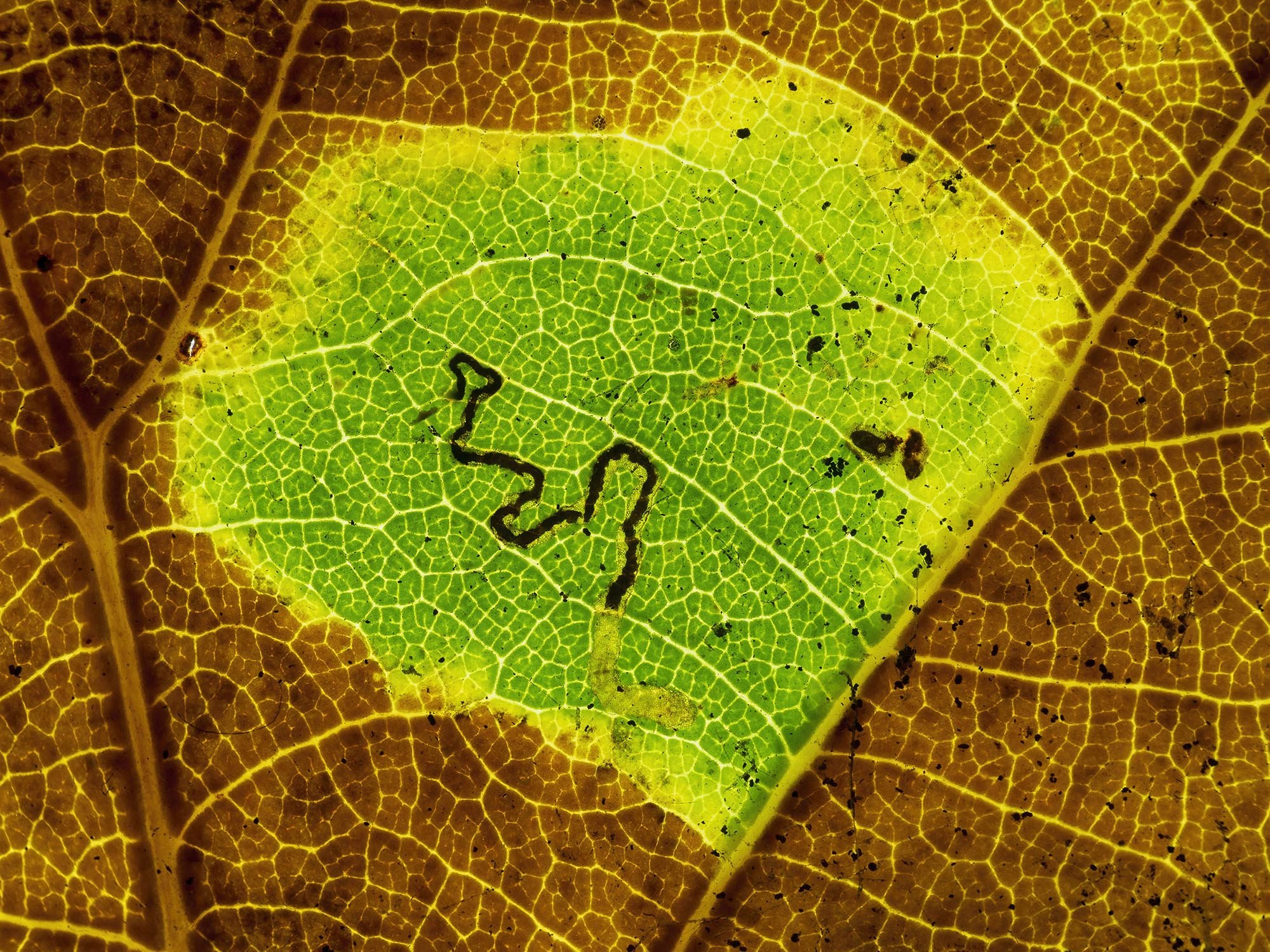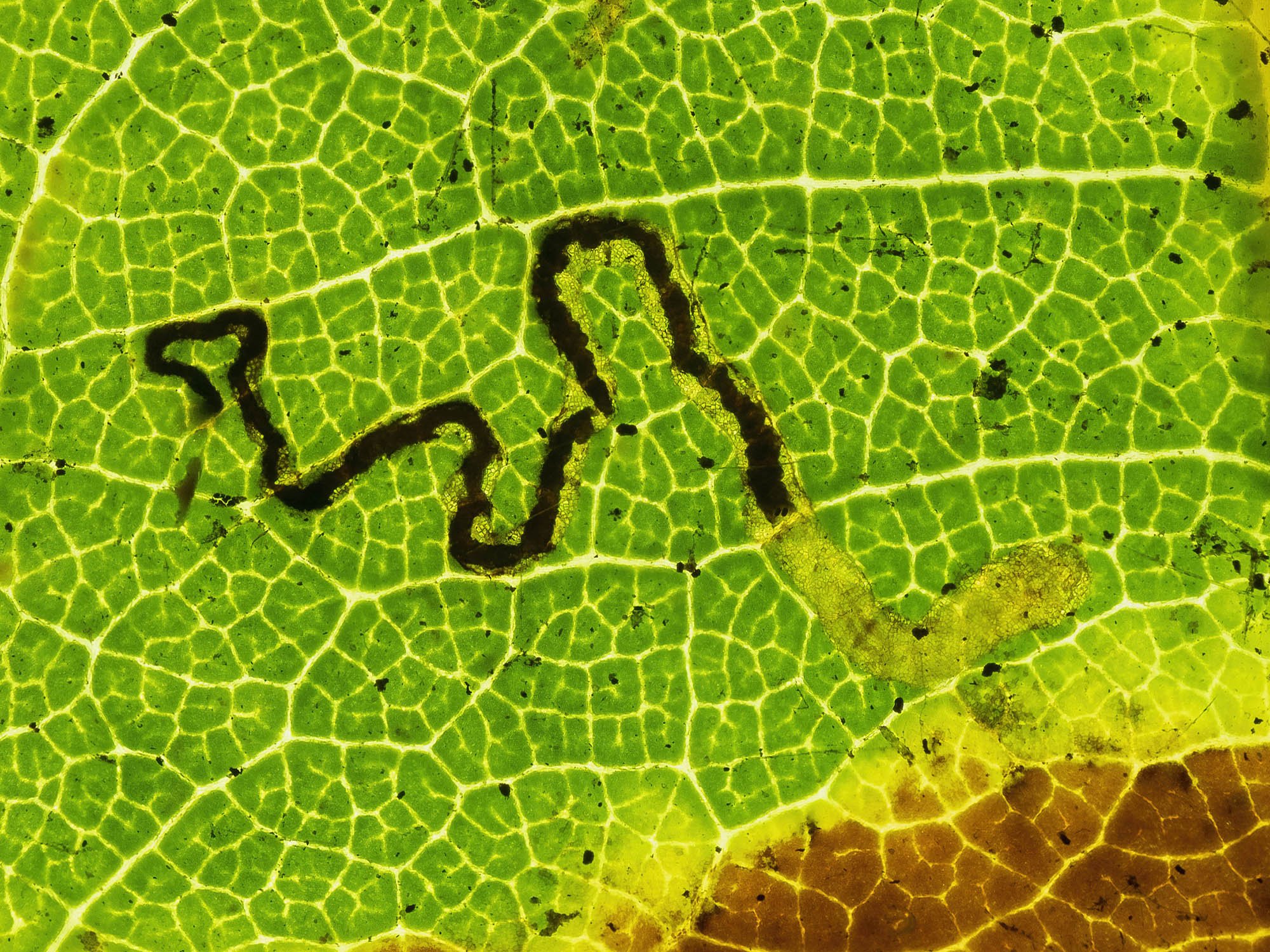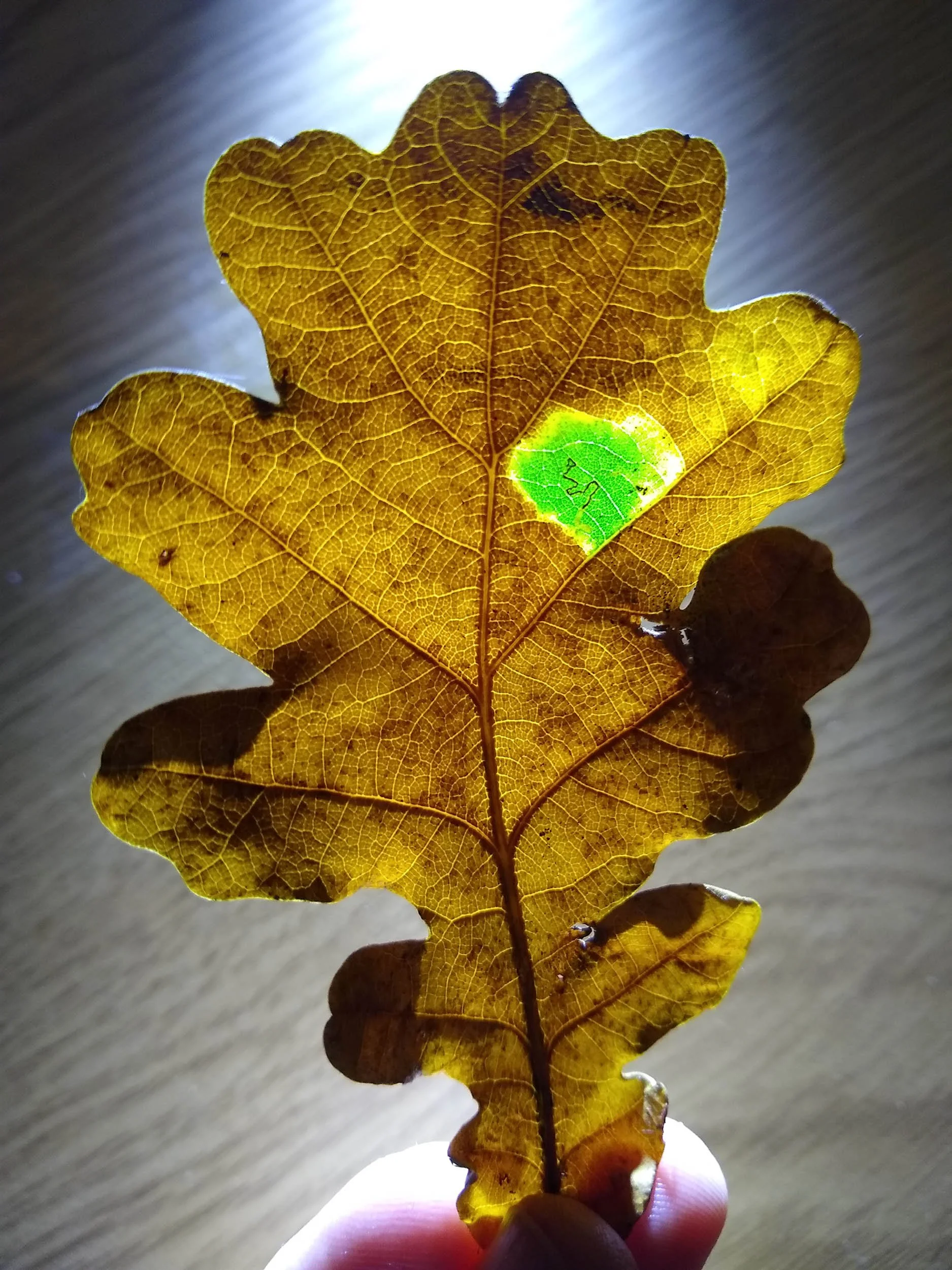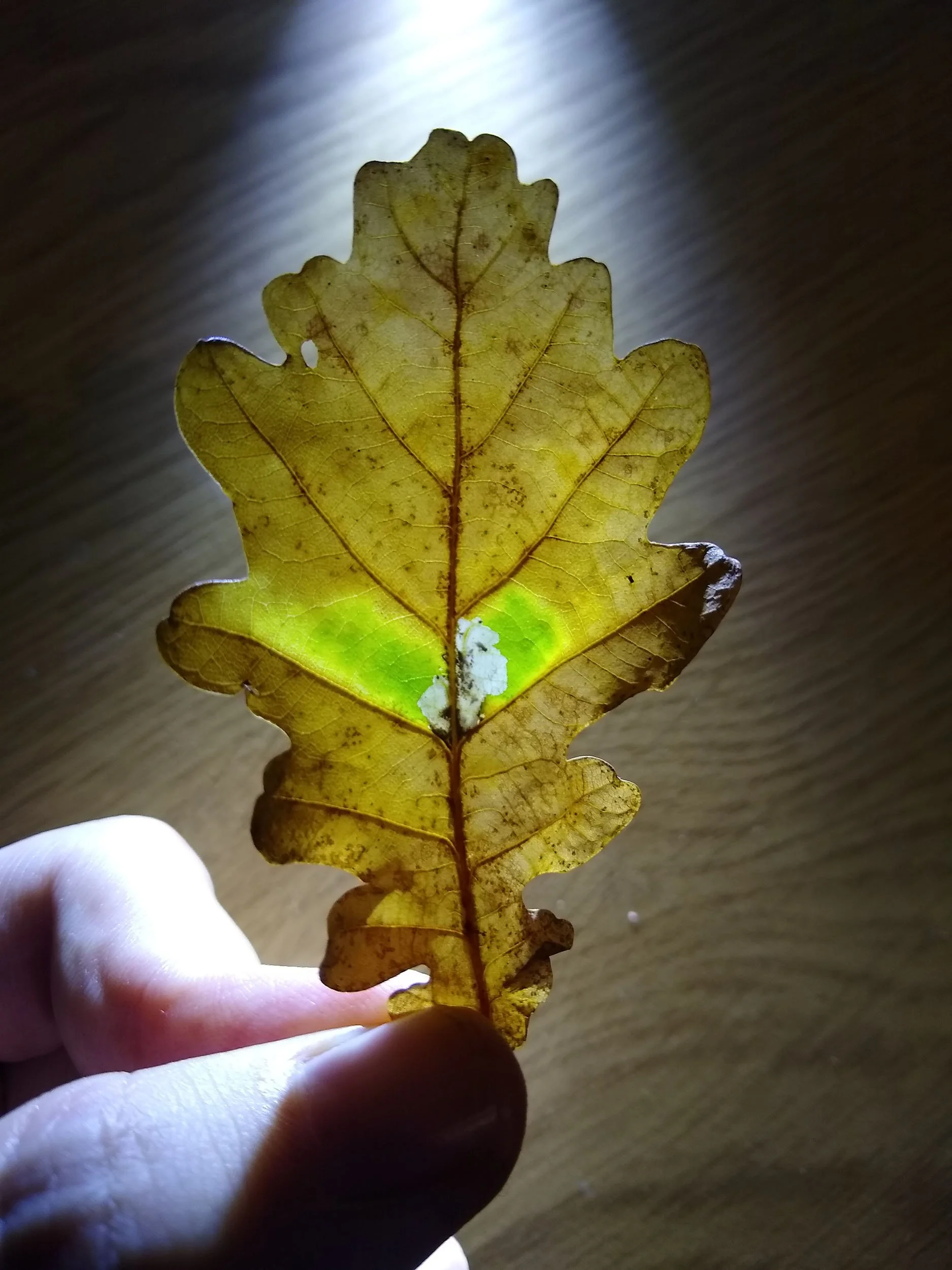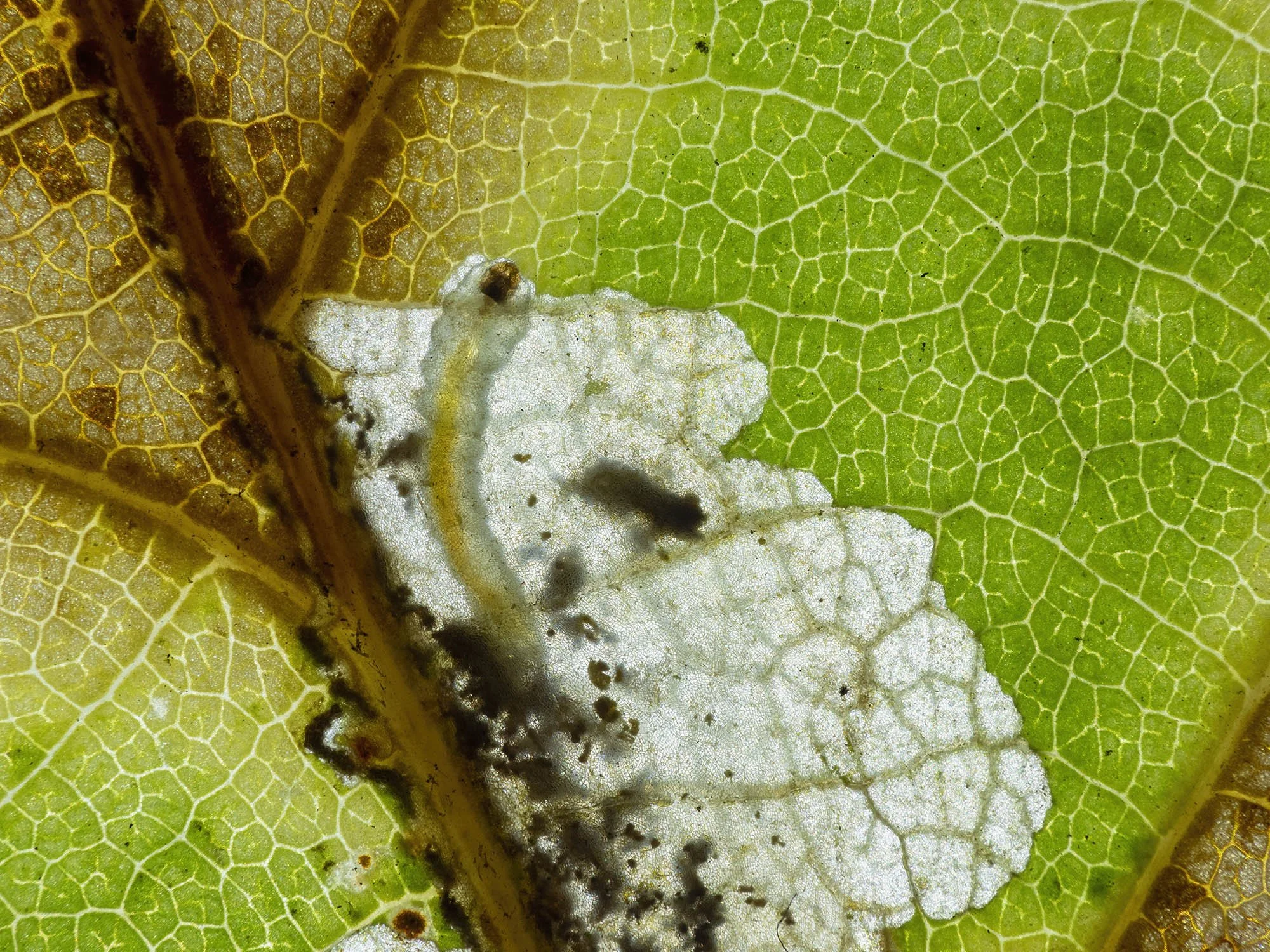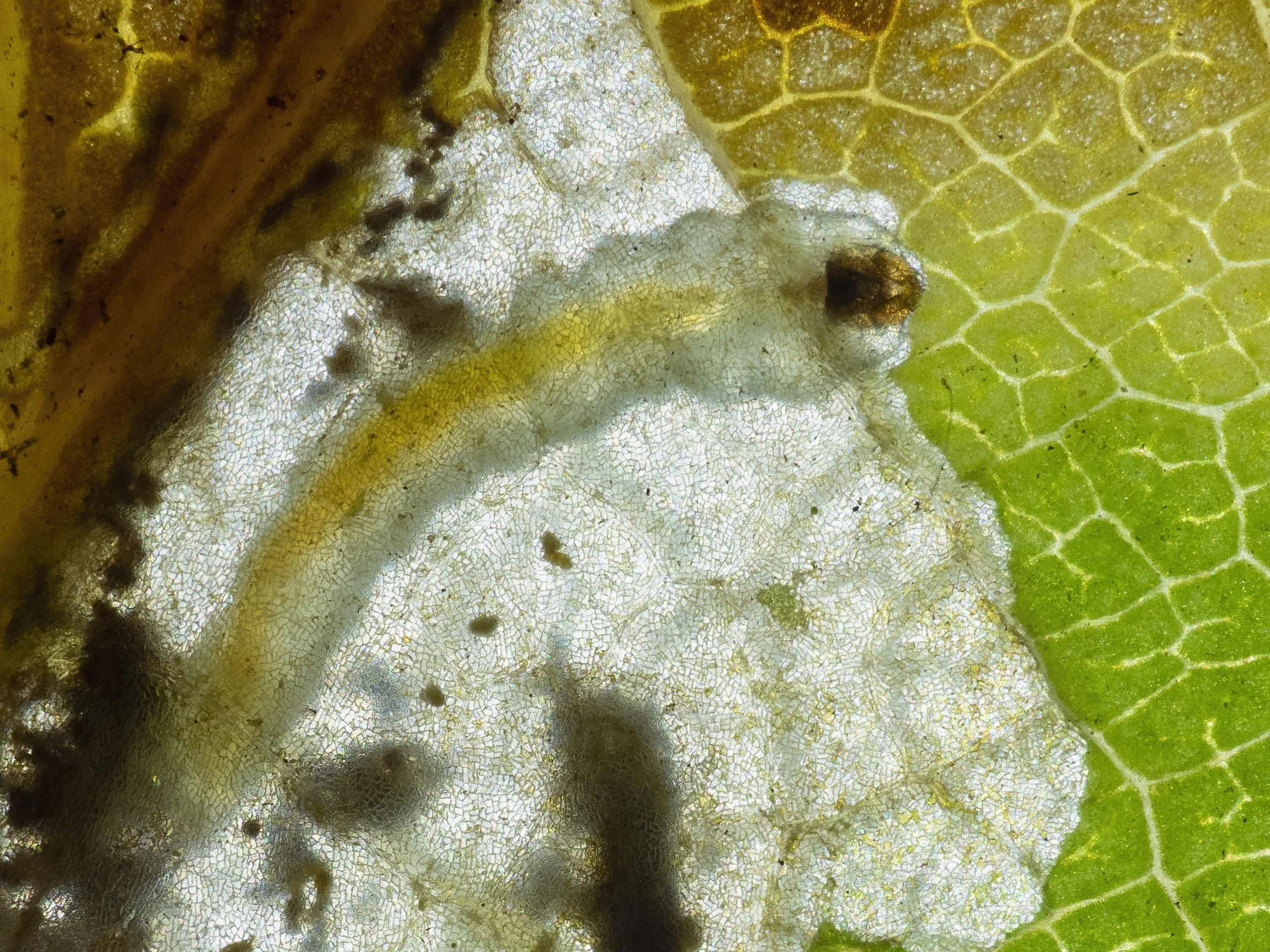Leaf Mining Caterpillars
Leaf mining trail in an autumn leaf.
Having seen Lucy Hodson’s Instagram post and subsequent Autumnwatch feature about these tiny caterpillars, I made a point of having a closer look at the leaves on the ground, the next time I went on a walk.
When you actually know about these creatures and are specifically looking for them, you realise how many there actually are. These tiny caterpillars are only a couple of millimetres in length and would ordinarily be hidden away, undetectable within the layers of a leaf. They stand out this time of year, however, due to a pretty incredible adaptation.
When the nights draw in and the temperature drops, photosynthesis slows down and is gradually stopped. Chlorophyll, the previously dominant green pigment which gives the tree its energy, gets overtaken by the other substances in the leaf. The leaf eventually seals itself which traps in its chemicals whilst reducing the amount of water that can reach it. This breaks the leaf down, turning it from green to brown, before dropping off.
This process is no good for the caterpillars who, at this stage, still need to eat the nutritious green leaves. Imagine having months worth of food put in front of you and being told to get on with eating it. The food at the end isn’t exactly going to be fresh by the time you get to it. These caterpillars have an ingenious solution to this. They have a bacteria in their saliva that slows this breaking down around them. While the rest of the leaf succumbs to the effects of autumn, the caterpillar has its own private little bit of green paradise to continue eating. This also provides a clear indication of their presence when looking for leaves on the ground, as you can see on the wider photos below.
The distinct trail left by the caterpillar as it eats a trail through the leaf.
If you look at the close up above, although there is no caterpillar present, it’s pretty obvious where it has been. The black line is in fact a trail of droppings, left in the wake of this eating machine. What began as a tunnel has essentially become a leaf colon.
This time of year you can easily see which leaves have, or have had, a leaf miner inside them by an area of green that hasn’t turned brown with the rest of it.
If you look closely you can just make out two caterpillars either side of the central stem on the leaf.
When you shine a back light on the leaves it reveals what’s going on inside them. In the case of the second leaf, the two caterpillars had eaten all of the green section around them, leaving them exposed. The last two photos are from that leaf.
A closer look at the intricate leaf structure left behind after being eaten by the caterpillar
It isn’t until you zoom in really closely before you realise there is still a very thin layer left by the caterpillar once it has eaten the green section. It’s an incredibly intricate mosaic structure which I would love to be able to get a closer look at, if I had the equipment and know how.
A close-up video of the leaf mining caterpillars eating.

